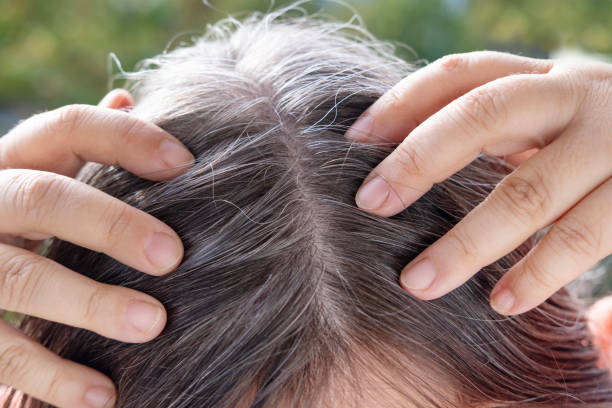Acne is a prevalent skin condition that affects individuals across different ages and skin types. The main question that often arises when addressing acne concerns is: which type of skin is prone to acne and why? The answer lies in understanding our skin’s unique characteristics and how they interact with environmental and genetic factors. In this article, we will delve into the various skin types, identify which are more susceptible to acne, and explore the reasons behind this vulnerability. Recognizing your skin type is the first step toward effective acne management and achieving clearer, healthier skin.
The Key Factors That Cause Acne

Several factors contribute to the development of acne, including sebum production, clogged pores, bacteria presence, and inflammation. Sebum, an oily substance produced by sebaceous glands, is essential for skin hydration but can cause issues when produced in excess. Clogged pores result from the accumulation of dead skin cells and sebum, which can lead to the formation of pimples or acne cysts. The proliferation of P. acnes bacteria in trapped sebum can provoke inflammation, leading to red, swollen acne. Additionally, lifestyle habits such as diet, stress levels, and inadequate skincare routines can exacerbate acne.
Diving Deeper: Which Skin Types Are Most Susceptible to Acne?

Not all skin is created equal when it comes to the risk of developing acne. Certain skin types are predisposed due to their innate qualities. Oily, combination, and at times, sensitive skin are more likely to struggle with acne due to their nature. Oily skin, because of its higher sebum production, is particularly prone. Combination skin faces the dual challenge of managing oiliness in some regions while dealing with dryness in others. Sensitive skin, though not typically oily, may experience acne due to irritation and inflammation provoked by external or internal triggers.
Oily Skin: The Primary Suspect in Acne Development
Individuals with oily skin often find themselves combatting frequent breakouts. This skin type is characterized by an excess production of sebum, which not only provides a breeding ground for bacteria but also leads to clogged pores. Oily skin can look glossy and feel greasy, particularly in the T-zone area, which includes the forehead, nose, and chin. Although this skin type retains moisture well and tends to show fewer wrinkles, the heightened risk of acne can be a persistent issue.
Tips for Managing Oily Skin
Understanding how to take care of oily skin is pivotal in preventing acne. Following a regimented skincare routine can make a significant difference:
- Wash your face twice a day with a gentle, alcohol-free cleanser to prevent overstimulation of oil glands.
- Use oil-free, non-comedogenic moisturizers and sunscreens to keep skin hydrated without clogging pores.
- Incorporate a weekly exfoliation routine to remove dead skin cells and reduce pore blockages.
Combination Skin: A Complex Battle Against Acne
Combination skin is defined by having areas that are oily and others that are dry or normal. The T-zone in combination skin tends to be oily, while the cheeks and eye areas may remain dry. This complexity requires a more nuanced approach to skincare, as methods for managing oily skin may not be appropriate for dry patches and vice versa.
Managing combination skin means addressing each area’s needs. For many, this involves using different products or treatment methods on various sections of the face.
Strategies for Balancing Combination Skin
A balanced skincare routine that addresses both the oily and dry regions of combination skin can be challenging to develop. Here’s a simplified approach:
- Choose a mild cleanser that removes excess oil without stripping moisture from dry areas.
- Apply an oil-absorbing product or toner only to the oily T-zone.
- Moisturize the cheeks and other dry spots with a hydrating, non-comedogenic lotion.
Sensitive Skin: Acne Triggered by Irritation
Sensitive skin reacts easily to stimuli that would not bother other skin types, resulting in redness, itching, and acne. This reactivity can be due to genetic predispositions, allergies, or environmental factors. When sensitive skin becomes irritated, it can lead to an inflammatory response, often manifesting as acne. Thus, individuals with sensitive skin must be especially cautious with the products they use and the environments they expose their skin to.
Gentle Care for Sensitive Skin
Using gentle, hypoallergenic skincare products and avoiding known irritants are key steps in caring for sensitive skin:
- Select fragrance-free, minimal ingredient products.
- Test new products by patch testing on a small skin area before full application.
- Always use sun protection to avoid UV-induced irritation.
Less Common Acne Culprits: Dry and Normal Skin Types
Dry and normal skin types are less often discussed in acne conversations, but they are not immune to breakouts. For those with dry skin, acne can result from an over-production of oil as a response to dehydration. Normal skin, which is well-balanced, might experience occasional acne due to hormonal changes or incorrect product use. Here is a table summarizing the main considerations for each skin type in preventing acne:
| Skin Type | Main Acne Consideration | Skincare Focus |
|---|---|---|
| Oily | Excess sebum production | Regular cleansing, oil control |
| Combination | Oily and dry patches | Targeted treatment |
| Sensitive | Irritation-induced inflammation | Gentle, hypoallergenic products |
| Dry | Overproduction of oil due to dryness | Hydration |
| Normal | Hormonal changes or unsuitable products | Maitenance of balanced care |
External Factors and Acne: Does Skin Type Even Matter?
While skin type plays a critical role in acne development, we cannot ignore the influence of external factors like diet, stress, and hormones. These elements are indiscriminate and can affect any skin type. For instance, stress can prompt hormonal imbalances that increase oil production, leading to acne. Balanced nutrition can also support skin health; consuming low glycemic index foods and reducing dairy intake might benefit those prone to acne. Ultimately, a comprehensive approach that considers both internal and external influences is essential for acne management.
Conclusion: The Big Picture in Managing Acne Across Various Skin Types
To conclude, understanding your skin type is paramount in tackling acne effectively. Oily, combination, and sensitive skin types are more prone to acne for different reasons, yet managing lifestyle factors and using the right skincare approach applies to all. Seeking personalized advice from a dermatologist can be beneficial. Remember, there is no one-size-fits-all solution when it comes to skin health – an individualized and holistic strategy is often the key to clear, vibrant skin.
FAQs About Skin Types and Acne
Q1: Can dry skin have acne?
A1: Yes, dry skin can also be susceptible to acne. Over-washing or using harsh skincare products can strip the skin of its natural oils, triggering the skin to produce more oil as a protective measure, which can cause acne.
Q2: Is acne only a teenage problem?
A2: No, acne is not exclusive to teenagers. Adults may also suffer from acne due to stress, hormonal changes, or other factors, regardless of their age.
Q3: How often should someone with oily skin wash their face?
A3: Those with oily skin are advised to wash their face twice a day with a gentle cleanser to prevent overstimulation of oil production while keeping the skin clean and preventing breakouts.
Q4: Are acne and diet related?
A4: Diet can affect acne, as foods with high glycemic indexes and certain dairy products might cause or worsen acne for some individuals. However, effects vary from person to person.
Q5: Can makeup cause acne?
A5: Makeup can contribute to acne if it clogs pores or if you’re allergic to certain ingredients. Using non-comedogenic makeup and thorough cleansing can help prevent makeup-related acne.



